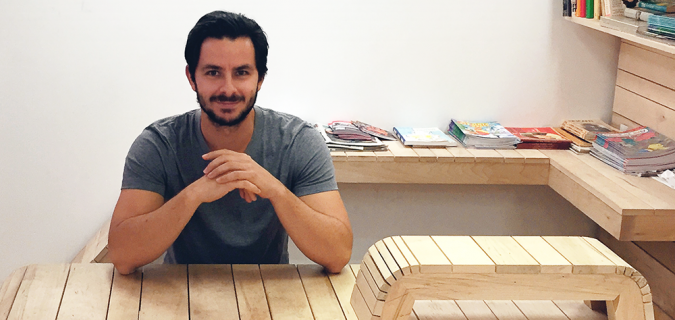Tim Grassin is passionate about building and growing niche service businesses. He’s currently working on his third venture, Candy Banners. Follow him @egmit.
What is the first thing you did to turn your current business from an idea into a reality?
Before I went ahead and incorporated the business and hired the right people, I made sure to sell the product to at least three clients. Obviously I had no way to actually come through on my offering, but at least I had the assurance the product would sell. The clients were not happy to learn I wouldn’t be able to deliver, but eventually two of them became real customers as soon as I actually set up the business.
What is the scariest part of being a young entrepreneur and how can others overcome this fear?
The No. 1 fear of not being an employee, other than a steady income, is the fear of being judged or misunderstood. I have found that there is a stigma against early-stage companies and entrepreneurs from people outside the entrepreneurial sphere. Until you have something to show for it (product, revenue, press), people will assume that you are working on an insignificant business and will dismiss your work.
Were you ever told not to pursue your entrepreneurial dreams? Who told you that, what did they say and why did you ignore them?
I was working in investment banking before I started my first venture, so there were many reasons to dissuade me from filing my resignation. My parents and friends were very unclear about my motivations. The business I wanted to start didn’t make sense to them.
What is the No. 1 thing you wish you’d known starting out and how did you learn it?
By almost going broke, I discovered that providers expect you to pay them a lot faster than client are willing to pay you. Make sure you have decent working capital handy.
What do you recommend all new founders do for their business — or their personal lives — that will help them the most?
The thing that helped me the most was realizing that there are people out there who are much smarter than me and are specialists. So I hired the smartest person for each role in the business.
For my personal life, I discovered that there is such a thing as a productivity curve. If I work longer than 10 hours a day, I become very unproductive and unhappy. So I decided to never work more than that, which frees up time for social life and activities.
How do you end each day and why?
I don’t have a specific way of ending the day, but I sleep a lot better knowing what I’ll be working on the next day. So I make sure to create a checklist for the following day, every day.
What is your best PR/marketing tip for business just starting up?
Create a relationship with leaders in your industry. It’ll take time but it’s very feasible and the payout is huge.
What is your ultimate goal? What will you do if/when you get there?
The ultimate goal is to be Raymond Tusk from “House of Cards.” I don’t expect to become a billionaire, but I like the concept of making “yes-no” decisions at a very high strategic level. If I can automate my business enough to get to that point, I’ll be a happy man.













